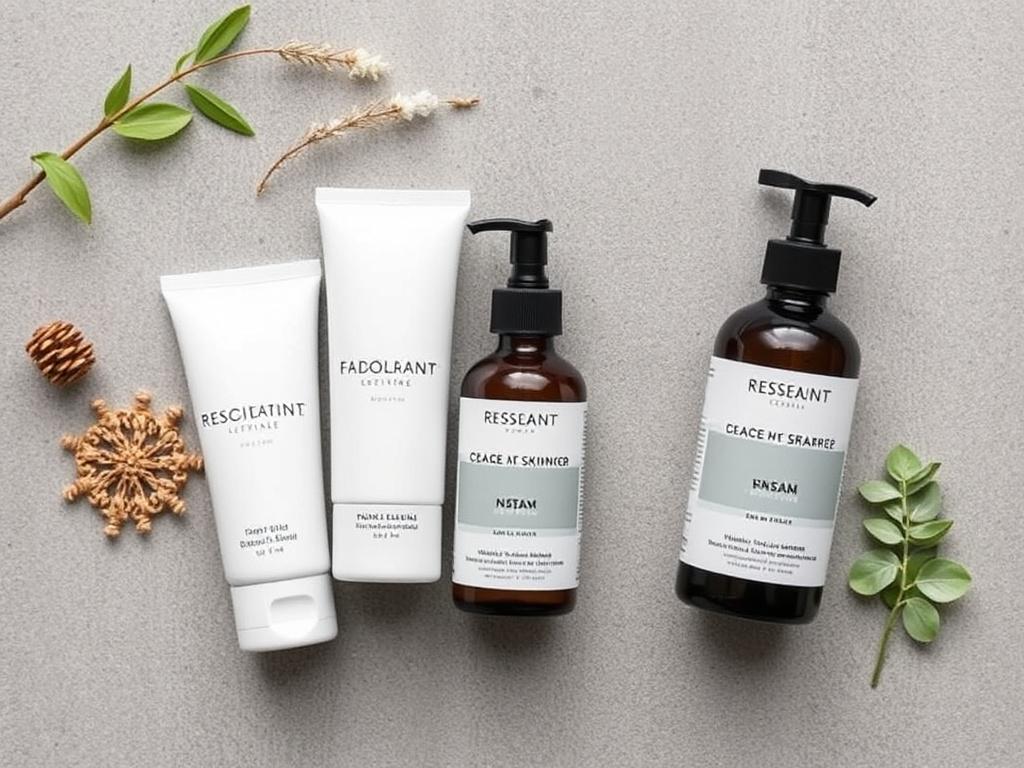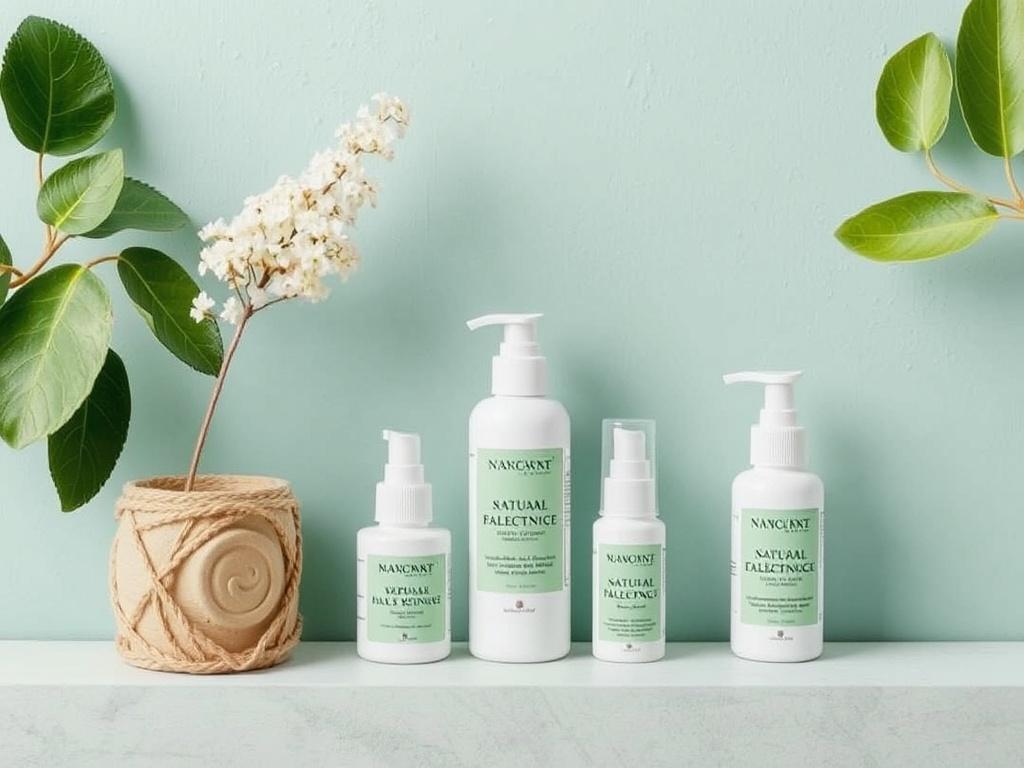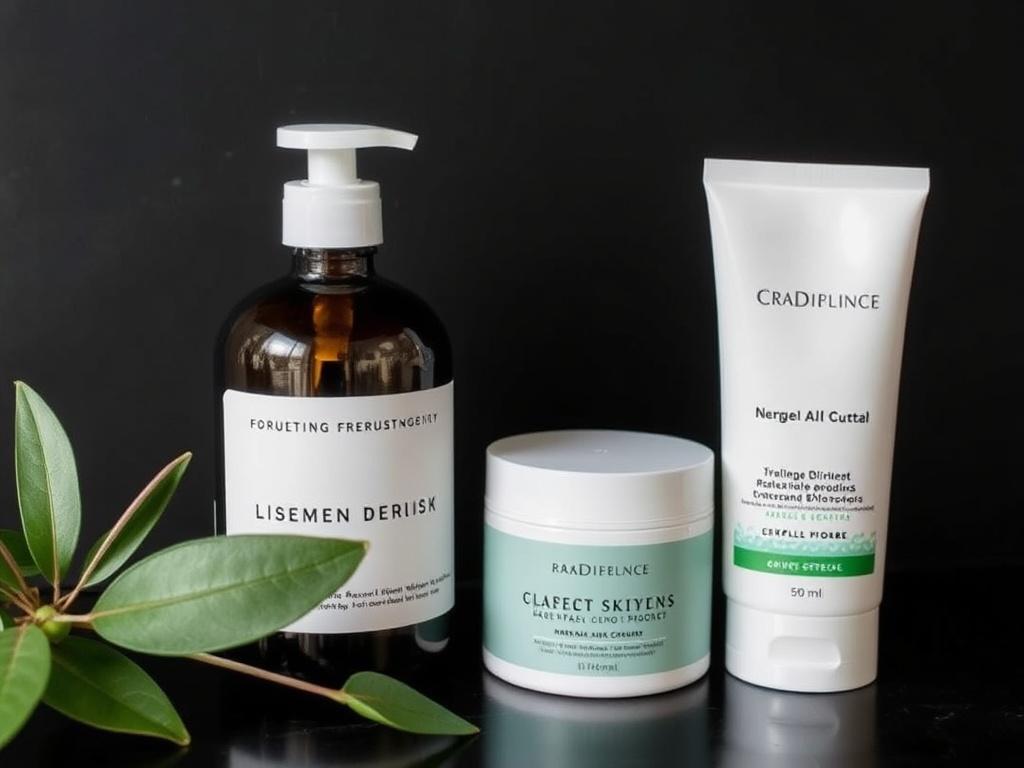Содержание статьи
- 1 What Does “Natural” Mean in Skincare?
- 2 Are Natural Skincare Products Safer?
- 3 The Environmental Impact of Natural Skincare Products
- 4 Common Ingredients in Natural Skincare Products
- 5 Debunking Myths About Natural Skincare Products
- 6 How to Choose the Best Natural Skincare Product for You
- 7 Final Thoughts on the Cost of Natural Skincare
- 8 How to Incorporate Natural Skincare into Your Routine
- 9 What the Future Holds for Natural Skincare Products
- 10 Conclusion
When you stroll down the aisles of a beauty store or browse online for skincare, you’re likely bombarded with labels shouting “natural,” “organic,” or “chemical-free.” It’s a trend that has exploded in recent years, fueled by growing consumer awareness and demand for products that seem safer, gentler, and better for your skin and the environment. But what does “natural” really mean in the context of skincare? Is it just a clever marketing tactic, or are natural skincare products genuinely the better choice? In this article, we’re going to unravel the truth about natural skincare products: what they are, how they’re made, their benefits and drawbacks, and what you should consider before splurging on that next “all-natural” cream or serum.
What Does “Natural” Mean in Skincare?

At first glance, the word “natural” sounds straightforward—it suggests ingredients that come from nature, untouched by synthetic processes. However, the reality is more complicated. There is no universal legal definition or standard for the term “natural” in skincare. Unlike “organic,” which has strict certification criteria in many countries, “natural” can be used rather loosely. This ambiguity means that a skincare product labeled as natural could range from being 100% plant-based and minimally processed to containing synthetic chemicals alongside natural extracts.
Understanding Labels and Certifications
One way to navigate this confusion is to become familiar with the certifications and labels related to natural skincare products. Some third-party organizations offer seals of approval to products that meet their specific criteria. Here’s a table summarizing some common labels you might encounter:
| Certification | What It Means | Key Criteria | Example Organizations |
|---|---|---|---|
| USDA Organic | Certified organic ingredients | At least 95% organic ingredients; no synthetic pesticides | USDA (United States Department of Agriculture) |
| Ecocert | Organic and natural cosmetics | At least 95% natural ingredients; 10% organic made in EU | Ecocert (Europe-based) |
| NSF/ANSI 305 | Personal care products with organic ingredients | Minimum 70% organic ingredients | NSF International |
| Natural Products Association | 100% natural ingredients | Contains no synthetic fragrances or dyes | Natural Products Association (NPA) |
Knowing which certifications are reliable can help consumers make better choices rather than relying solely on the “natural” label.
Are Natural Skincare Products Safer?
One of the main reasons shoppers gravitate toward natural skincare products is the perception that they are safer and gentler on the skin. After all, the idea of using ingredients sourced directly from plants, flowers, and minerals appeals to our instinct to avoid harsh chemicals. But are natural skincare products really safer?
Natural Doesn’t Always Mean Non-Irritating
Plants may be natural, but they are also complex chemical factories. Some natural ingredients like essential oils, citrus extracts, and even certain nut oils can provoke allergic reactions or skin irritations, especially for people with sensitive skin. For example, cinnamon oil and lemon peel oil, often included for their fragrance and antimicrobial properties, can cause redness, dryness, or burning sensations.
The Importance of Formulation
How an ingredient interacts with your skin depends on formulation—a process that blends active components, stabilizers, emulsifiers, and preservatives to create a product that works effectively and safely. Even natural skincare products require preservatives to prevent microbial growth, which can ruin the product and pose health risks. Some natural preservatives include substances like grapefruit seed extract, vitamin E, or rosemary extract, but they are often less potent than synthetic ones, which can influence product shelf life.
The Environmental Impact of Natural Skincare Products

A big driver behind the natural skincare boom is environmental consciousness. Many consumers want products that are not only good for their skin but also good for the planet. Natural skincare products often come with promises of being eco-friendly, biodegradable, cruelty-free, and packaged in sustainable materials. But how true are these claims?
Benefits for the Environment
Many natural ingredients are biodegradable, meaning they break down more easily in the environment than synthetic chemicals. Additionally, companies that produce natural skincare products tend to focus on sustainable farming practices, avoiding pesticides and herbicides that can harm ecosystems. Packaging is another area of focus; some brands use recycled or compostable materials to reduce waste.
Challenges and Considerations
However, not all natural products are eco-friendly. For example, harvesting certain botanicals can lead to overexploitation if not done sustainably. Oils like argan and rosehip have become popular in natural skincare but require significant water and resources to produce. Moreover, shipping natural raw materials globally can contribute to carbon emissions.
Common Ingredients in Natural Skincare Products
If you’re considering switching to natural skincare, it helps to understand some of the most popular ingredients you’ll encounter. These ingredients are favored for their moisturizing, soothing, or antioxidant properties.
- Aloe Vera: Used for its soothing and hydrating effects, often to calm irritated skin.
- Shea Butter: Rich in fats that nourish and protect dry skin.
- Jojoba Oil: Similar to skin’s natural sebum, it balances oil production.
- Chamomile: Known for calming inflammation and redness.
- Green Tea Extract: High in antioxidants, it fights free radicals and aging.
- Coconut Oil: Moisturizes and has antibacterial properties but may clog pores in some skin types.
- Essential Oils (Lavender, Tea Tree, etc.): Used for fragrance and therapeutic qualities, though can irritate sensitive skin.
Natural vs. Synthetic Ingredients: A Quick Comparison
| Factor | Natural Ingredients | Synthetic Ingredients |
|---|---|---|
| Source | Derived from plants, minerals, animals | Man-made in labs |
| Potential Allergies | May cause irritation due to plant compounds | Depends on chemical, some are hypoallergenic |
| Environmental Impact | Often biodegradable; depends on harvesting practices | Can be persistent pollutants; production may have high carbon footprint |
| Stability | Less stable; shorter shelf life | More stable & consistent |
| Effectiveness | Varies; active compounds sometimes less concentrated | Often designed for targeted and potent effects |
Debunking Myths About Natural Skincare Products
Because of heavy marketing and emotional appeals, there are many myths surrounding natural skincare products. Let’s break down some of the common misconceptions:
Myth 1: Natural Skincare Products Are Always Better for Sensitive Skin
While many natural products are gentle, some natural ingredients can trigger allergies or sensitivities. It’s crucial to patch test new products—whether natural or synthetic—before using them broadly.
Myth 2: “Natural” Means No Chemicals
The term “chemical” refers to any substance made of matter, including water, oxygen, and vitamin C. Natural skincare products have chemicals too—they are just chemicals derived from natural sources.
Myth 3: Natural Skincare Is More Environmentally Friendly
While generally true, some natural products come with environmental trade-offs. Sustainable sourcing, packaging, and overall company practices are better indicators of ecological responsibility.
Myth 4: Natural Products Are Safer Because They Don’t Use Preservatives
All water-based products require some form of preservation to prevent bacteria and mold growth. Many natural preservatives exist, but the absence of preservatives can pose risks.
How to Choose the Best Natural Skincare Product for You
Navigating the crowded natural skincare market can be overwhelming. Here are some tips to help you shop smartly:
- Read the Ingredient List: Look for recognizable names and research unfamiliar ones.
- Watch Out for Marketing Buzzwords: Words like “pure” or “clean” don’t guarantee quality or safety.
- Check for Certifications: Trusted certifications can add credibility.
- Consider Your Skin Type and Concerns: Even a natural product won’t suit everyone’s skin.
- Patch Test New Products: Apply a small amount on your wrist or behind your ear and observe for 24-48 hours.
- Research the Brand: Ethical sourcing and transparency often correlate with better products.
Sample Comparison of Popular Natural Skincare Brands
| Brand | Claimed Natural Ingredients | Certifications | Price Range |
|---|---|---|---|
| Brand A | 95% plant-based with botanical extracts | Ecocert, Cruelty-Free | $$$ |
| Brand B | Organic oils and butters, without synthetic preservatives | USDA Organic | $$ |
| Brand C | Natural fragrance, vegan ingredients | Natural Products Association | $ |
Final Thoughts on the Cost of Natural Skincare

Natural skincare products often come with a higher price tag compared to conventional options. This is partly due to costlier sourcing, certifications, and small-batch production. However, price doesn’t always equate to quality or effectiveness. Some budget-friendly natural products work excellently, while some expensive ones may disappoint.
If you’re investing in natural skincare, prioritize products with transparent ingredient lists, good reputations, and formulas suited to your skin type. Sometimes, simplicity is better than complexity, especially when your skin is at stake.
How to Incorporate Natural Skincare into Your Routine
Transitioning to natural skincare doesn’t have to mean replacing every product at once. You can start small by introducing a natural cleanser, moisturizer, or sunscreen and observe how your skin reacts. Consistency is key because skin improvements often take weeks or months.
Remember to maintain good skincare habits—drink plenty of water, protect your skin from excessive sun exposure, and avoid harsh scrubbing—regardless of the products you use.
What the Future Holds for Natural Skincare Products
The natural skincare market continues to grow rapidly as consumers seek healthier, more sustainable options. Innovations in clean formulas, biodegradable packaging, and ethically sourced ingredients are improving product quality and environmental impact. Expect to see advances in natural preservatives, plant stem cell technology, and hybrid formulas that blend natural and synthetic ingredients for optimal benefits.
As consumers become more educated, demand will push brands to be transparent, scientifically grounded, and responsible. The key will be balancing nature’s gifts with modern science to deliver skincare that’s both safe and effective.
Summary Table: Pros and Cons of Natural Skincare Products
| Pros | Cons |
|---|---|
|
|
Conclusion
Natural skincare products offer a compelling choice for those seeking gentler, plant-based options that feel both luxurious and mindful of the environment. However, the label “natural” is not a guarantee of safety, efficacy, or sustainability. Understanding what natural means in skincare is essential to navigating the market wisely. Remember that natural ingredients can still contain potent compounds that might trigger reactions, and natural doesn’t automatically mean better or safer. The key to healthy skin is choosing products that match your skin’s unique needs, whether they are natural, synthetic, or a blend of both, while keeping an eye on ingredient transparency, ethical sourcing, and environmental responsibility. So next time you’re tempted by a product claiming to be all-natural, read the label carefully, do a patch test, and keep your eyes open for trusted certifications. Your skin—and the planet—will thank you for it.

